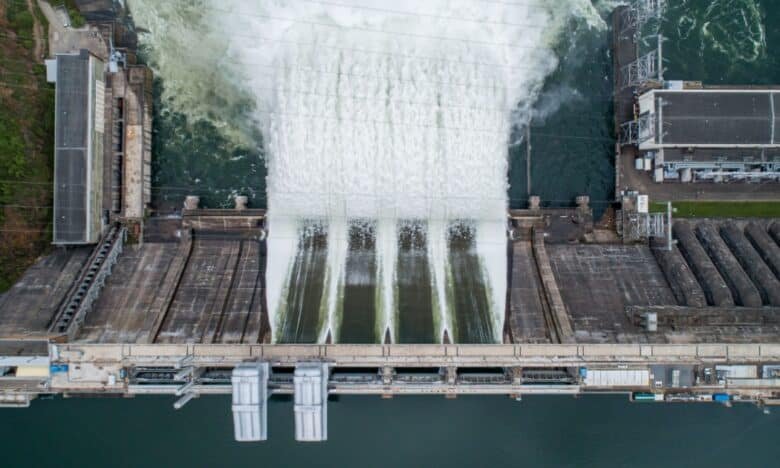
Balance is Key for Energy Resilience and Security, According to Experts
- November 3, 2024
As the Philippines grapples with its mission to achieve energy resilience and security for all, experts unanimously recommend a balanced strategy for a resilient and secure energy system that will future-proof the country’s power. Weighing in on the unique challenges peculiar to the country, such as its archipelagic landscape, rural population and vulnerability to environmental disasters, they have pointed out the solutions of integrating multiple energy sources, along with region-relevant technology and policies that promote equality
Holistic Usage of All Available Parts is Key to Balance
According to experts from Climate Reality Project Philippines during Stratbase ADR Institute’s roundtable discussion entitled Powering the Future: Accelerating Grid Modernization for Energy Security and Sustainable Development at the Asian Institute of Management, Makati City last November 23, 2023, the first priority of the country should be to diversify its energy sources to mitigate the risks that come with being too dependent on one power source. Crucial steps to achieve this would be to integrate renewable energy sources into the power mix, while maintaining traditional energy sources for a reliable baseload capacity. Having multiple sources reduces the country’s vulnerability to shocks such as power outages and fuel price hikes.
“Creating innovative technologies and increasing the use of renewable energy sources reduces environmental footprint and creates a more digitally-enabled, sustainable, and green economy in support of the circular economy,” explains Prof. Victor Andres Manhit, the President of Stratbase ADR Institute. (Climate Reality Project Philippines, 2023). He delves into this further in his opinion piece in Business World Online.
The Philippines’ current energy mix heavily relies on coal, accounting for around 57% of the country’s electricity production. While coal is still considered a reliable and affordable option, its environmental impact and the volatile nature of global coal markets raise concerns. Thus, experts argue for the integration of more renewables into the system to offset the risks associated with fossil fuel dependency. This balanced strategy not only promotes energy security but also aligns with global efforts to reduce greenhouse gas emissions and combat climate change.
With this, experts have recommended the slow takeover of more renewable energy sources into the power mix. This strategy balances coal’s volatility and renewable energy’s intermittence.
Policy Frameworks and Regulatory Support
Policy is the framework for achieving any goal. It is essential that policies are supportive of innovations and regulate environments where they are to be implemented. According to the Stratbase ADR Institute, attractive, stable, and forward-thinking policies are necessary to drive investment in renewable technology innovation. They stress that the government must work hand-in-hand with scientists and private entities to ensure the smooth execution for developments in the country’s energy transition. Creating regulatory frameworks and setting long-term goals to support the balanced energy approach is key to expediting the approval of energy projects, while providing incentives will garner the interest of global investors and the private sector to adequately fund these initiatives.
Experts also suggest the rehashing of some policies to address existing bottlenecks to renewable energy incorporation. Despite its abundant natural resources, the Philippines continues to experience regulatory and infrastructure hurdles that prevent efficient usage of them. Reforming policies and directing investments to grid modernization is the best thing the government can do to ensure the energy security of their citizens.
A joint statement released by major groups including the Blockchain Council of the Philippines, the Employers Confederation of the Philippines, the Federation of Philippine Industries, the Financial Executives Institute of the Philippines, Fintech Alliance.PH, the Foundation for Economic Freedom, the Makati Business Club, the Management Association of the Philippines, and the Women’s Business Council Philippines advocating for Energy Secretary Raphael Lotilla’s balanced energy mix policies, stating that “we need to prioritize augmenting power capacity.” (Del Rosario, 2024, BusinessWorld)
Decentralize the System
There is power in our local energy solutions. The Climate Reality Project advocates for decentralizing power systems, so each region can have their own unique power sources tailored to their needs. These include microgrids and distributed solar installations. Granting different regions with their own energy supply empowers them to be independent and in charge of how they use their resources. This also provides a security blanket for the power disruptions common in the Philippines due to fluctuating demand and natural disasters.
Innovation Paves the Way to the Future
The development of technology is what the Philippines needs to pivot their progress in the energy transition. Due to its erratic energy supply, digitalization and smart grid technologies provide an advantage in optimizing energy distribution and monitoring real-time energy usage, quickly addressing disruptions. This advancement will augment the reliability of renewable energy sources integrated into the mix.
More importantly, the innovations in energy storage systems such as batteries to increase their affordability and safety will be the game changer in solving the intermittency problem of renewable energy sources. The country would greatly benefit from cheaper ways to store excess energy during peak periods for later usage for full optimization of its resources.
Resilience is the Path Forward
In a Rappler article covering the Powering up: Weathering calamities in the energy transition” roundtable discussion presented by AboitizPower and the European Chamber of Commerce of the Philippines, Atty. Monalisa Dimalanta, chairperson and CEO of the Energy Regulatory Commission (ERC), states that “the “challenge and beauty of an energy transition for the Philippines lies in how many boxes we can tick with the resources we already have in hand.” (Rappler, 2024)
Blessed with a wide range of choices, it is up to us to keep developing all of them at an even pace to make sure all hands are on deck for the future of the country’s energy security.
Not only must we balance our available energy sources, but we must also balance the involvement and cooperation of government policymakers, private sector investments, autonomous local regions, innovative scientists, and responsible consumers to succeed as a nation.



